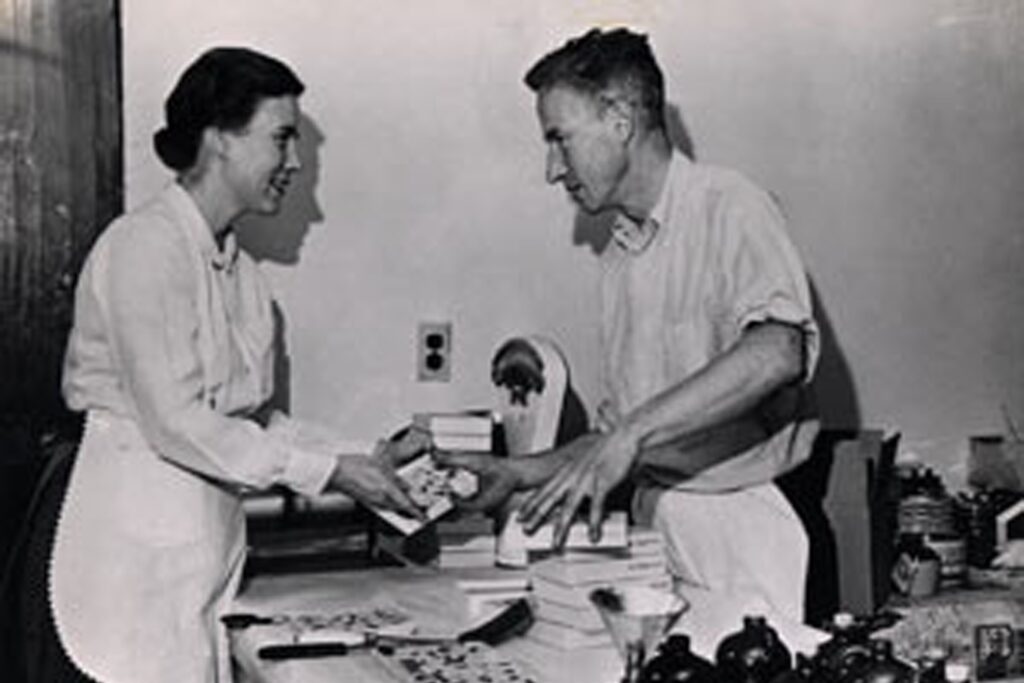A gravel road winds upward through the Vermont countryside, past stone walls and maple groves, until it opens onto a scene that feels lifted from a postcard: rolling hills dotted with grazing cattle, an 1865 farmhouse bustling with visitors, and the sweet smell of maple syrup lingering in the air. This is Sugarbush Farm, where time moves to the rhythm of seasons and five generations of the same family have learned that the secret to survival is not just making great cheese and syrup — it is understanding that every visitor who climbs that winding road is part of the story.
“We are actually five generations strong, and we all work here,” Elizabeth Luce, the fourth generation to take care of the 550-acre farm, told the Standard this week. Her daughter represents the fifth generation on the farm, 80 years after her great-grandparents, Jack and Marion Ayres, bought the hillside land in 1945 with nothing more than a dream to make country living work.
What the Ayres family started 80 years ago has become something remarkable: a working farm that has not only survived but thrived by staying true to its roots while adapting to each new generation’s vision. Today, visitors can sample 15 varieties of hand-waxed cheese, taste four grades of pure Vermont maple syrup, and witness something increasingly rare in modern America — a family business where great-grandmothers work alongside great-granddaughters, each contributing their own piece to a legacy that spans nearly a century.

Founders Jack and Marion Ayres make candy in 1945, marking the beginning of Sugarbush Farm’s eight-decade journey from a young couple’s rural dream to a beloved Vermont agricultural destination. Photo Provided
Under Betsy Luce’s stewardship, Elizabeth’s grandmother, the farm has maintained its agricultural focus, while also becoming a place where locals and visitors can understand the work that goes into producing the food they eat. The maple operation alone requires tapping approximately 8,500 trees each spring, when temperature fluctuations create the perfect conditions for sap flow. Modern plastic tubing systems now complement traditional bucket collection, allowing visitors to see how maple syrup production has evolved while still maintaining its essential character.
The intergenerational collaboration that visitors witness isn’t just for show — it’s essential to the farm’s operation. When Betsy Luce runs ideas by her granddaughters, “they say yeah, and then they come up with an additional idea. And that blends together so that we come up with new things.” After more than two years working on the farm, the young women have mastered essential operational knowledge while continuing to rely on Betsy’s accumulated expertise for complex decisions.
To commemorate their 80th anniversary, the farm is hosting a special open house weekend on July 12 and 13, showcasing the full scope of its operation. The celebration will feature guided tours of the sugar house every two hours starting at 10 a.m., providing detailed explanations from active sugar makers rather than the usual self-guided experience. Saturday will include free maple creemees, while Sunday morning will offer complimentary pancakes with farm-produced maple syrup.
“We’re hoping this open house thing gets those folks to be more aware that we’re not just a cheese store,” Betsy Luce said. The weekend will demonstrate the integrated nature of their operation, helping visitors understand how diversified farming creates multiple revenue streams while maintaining sustainable land use practices.
Looking toward the future, Elizabeth Luce’s vision emphasizes continuity over expansion. “We’ve got a pretty good thing going right now, so I’d like to see everything stay the same,” she said, though acknowledging that successful operations must adapt to changing conditions while maintaining core values.
Whether visitors come to sample cheeses, observe maple syrup production, or simply experience the quiet beauty of working farmland, they participate in an agricultural tradition that bridges past and present.
For more on this, please see our July 3 edition of the Vermont Standard.